Abstract
The reactions of a random sample of 72 Oxfordshire general practitioners to case vignettes illustrating psychosocial and physical presentations were assessed with a set of attitude rating scales. Two main underlying factors appeared to influence responses. The first reflected positive attitudes to both physical and psychosocial problems, and was associated with postgraduate experience in psychiatry and with older age. The second, reflecting measures of flexibility and responsibility for outcome, was associated with younger age and not having received vocational training. Other characteristics of the practitioners and their practices were not significantly related to these factors, and there was considerable unexplained variance. In addition, certain sex differences emerged: men general practitioners rated their ability to manage cases more highly than did their women colleagues, while women practitioners experienced more anxiety. These findings suggest that personal traits and qualities may remain a stronger determinant of general practitioners' reactions to patients' problems than formal training and qualifications.
Full text
PDF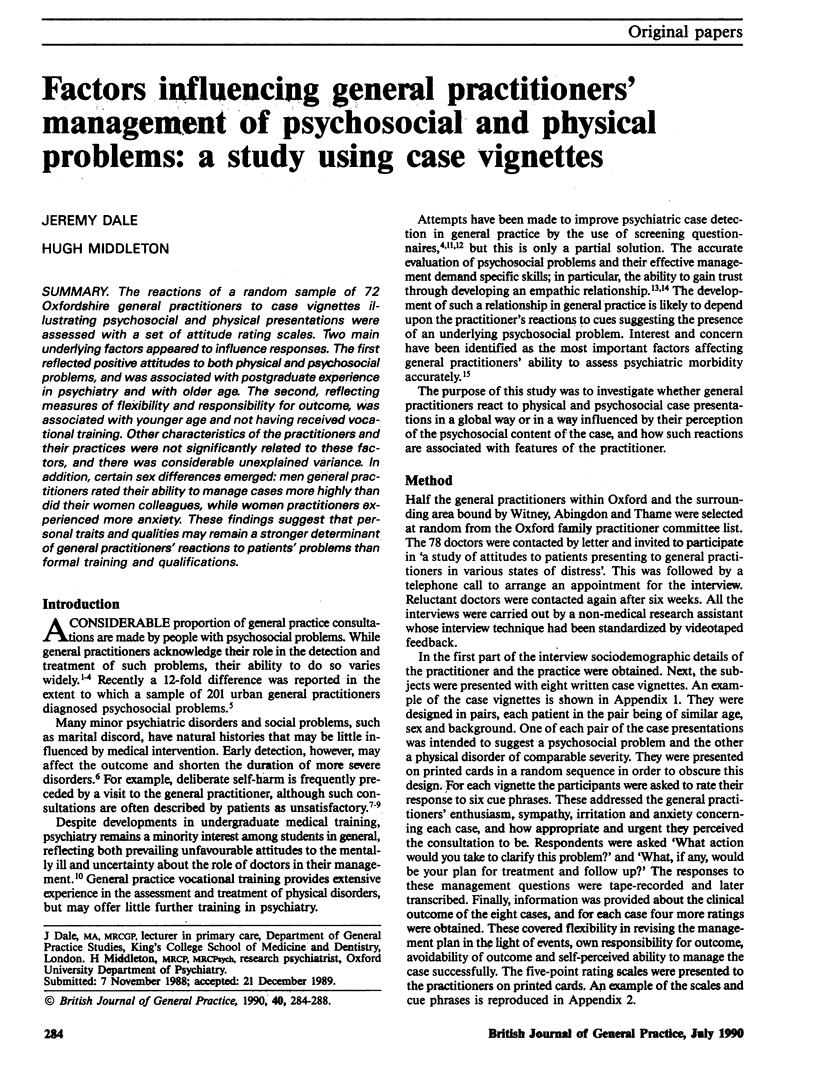
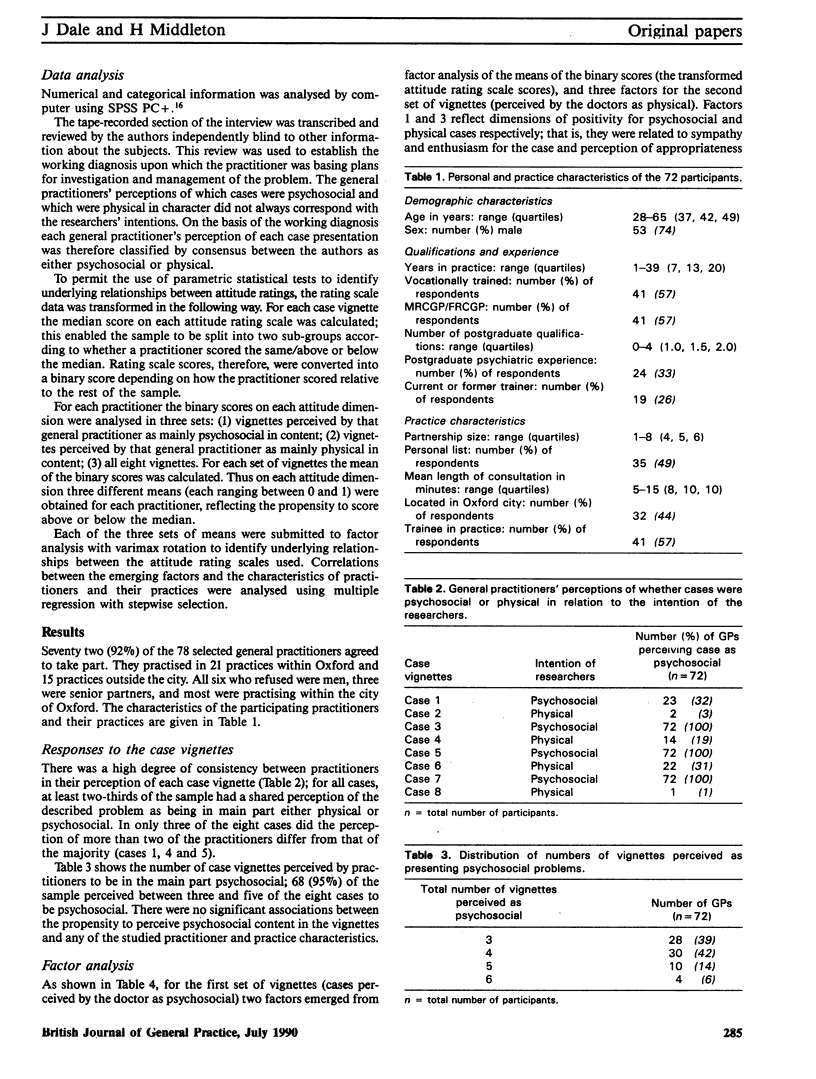
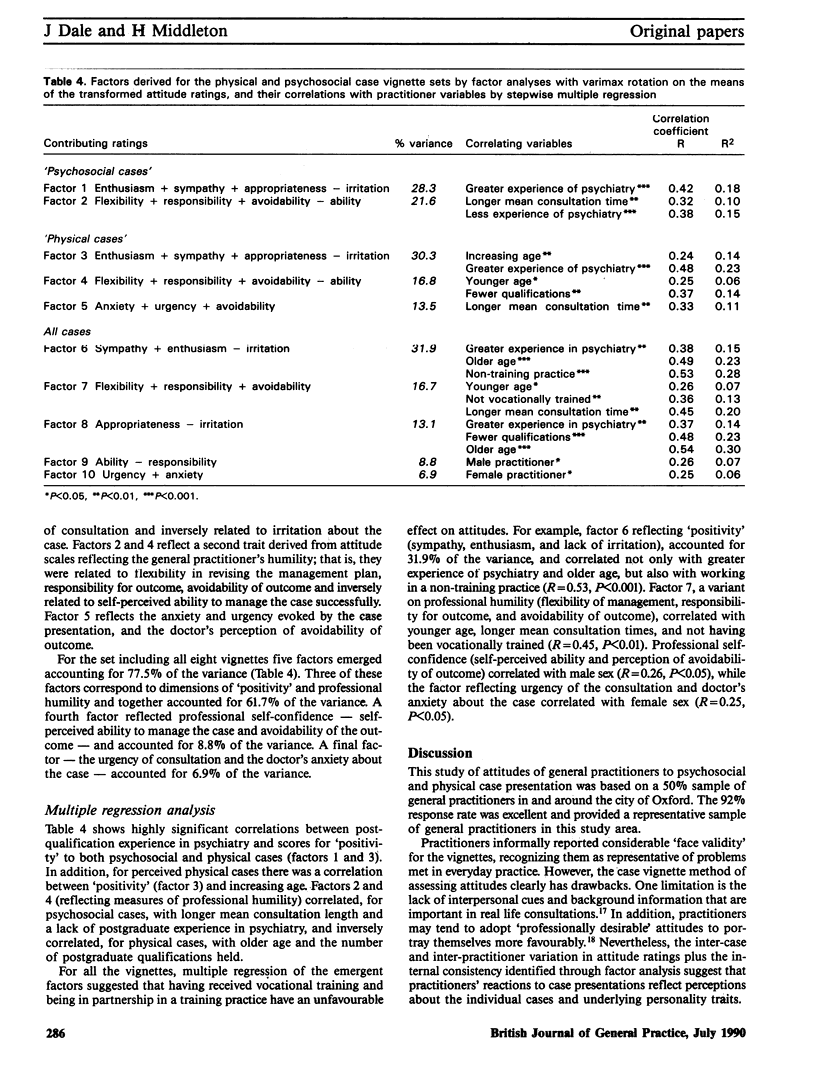
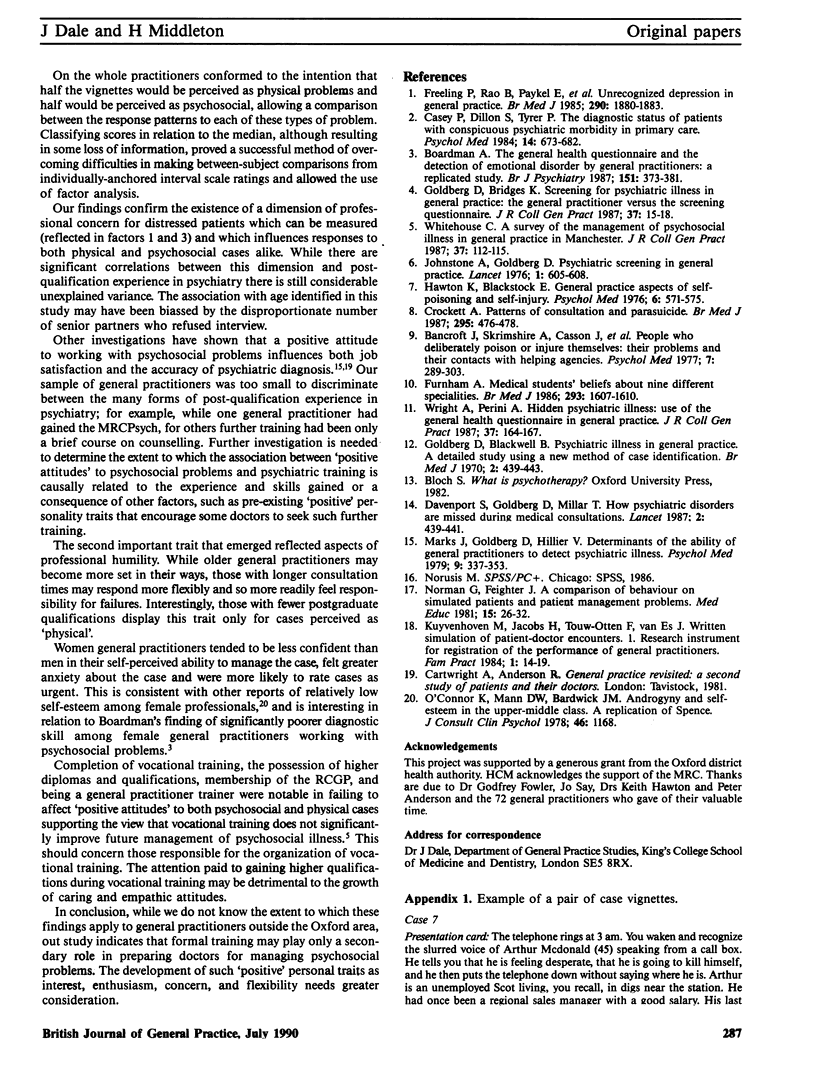
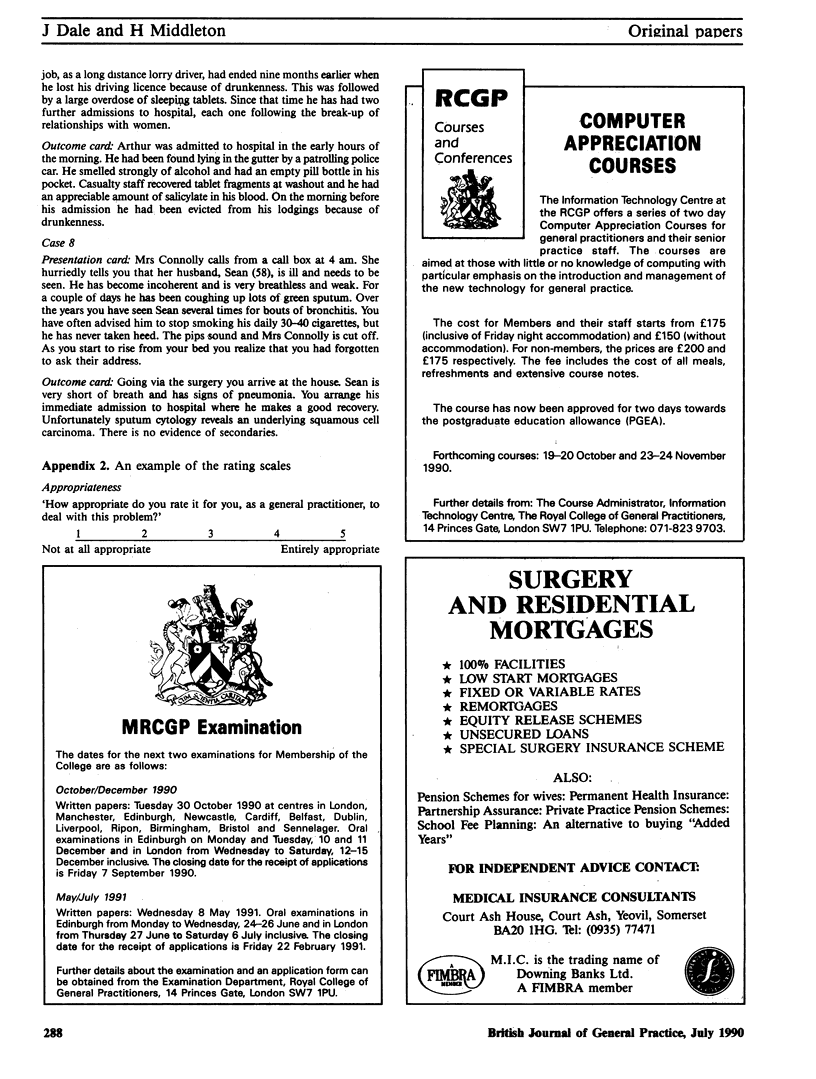
Selected References
These references are in PubMed. This may not be the complete list of references from this article.
- Bancroft J., Skrimshire A., Casson J., Harvard-Watts O., Reynolds F. People who deliberately poison or injure themselves: their problems and their contacts with helping agencies. Psychol Med. 1977 May;7(2):289–303. doi: 10.1017/s0033291700029391. [DOI] [PubMed] [Google Scholar]
- Boardman A. P. The General Health Questionnaire and the detection of emotional disorder by General Practitioners. A replicated study. Br J Psychiatry. 1987 Sep;151:373–381. doi: 10.1192/bjp.151.3.373. [DOI] [PubMed] [Google Scholar]
- Casey P. R., Dillon S., Tyrer P. J. The diagnostic status of patients with conspicuous psychiatric morbidity in primary care. Psychol Med. 1984 Aug;14(3):673–681. doi: 10.1017/s0033291700015282. [DOI] [PubMed] [Google Scholar]
- Crockett A. W. Patterns of consultation and parasuicide. Br Med J (Clin Res Ed) 1987 Aug 22;295(6596):476–478. doi: 10.1136/bmj.295.6596.476. [DOI] [PMC free article] [PubMed] [Google Scholar]
- Davenport S., Goldberg D., Millar T. How psychiatric disorders are missed during medical consultations. Lancet. 1987 Aug 22;2(8556):439–441. doi: 10.1016/s0140-6736(87)90970-6. [DOI] [PubMed] [Google Scholar]
- Freeling P., Rao B. M., Paykel E. S., Sireling L. I., Burton R. H. Unrecognised depression in general practice. Br Med J (Clin Res Ed) 1985 Jun 22;290(6485):1880–1883. [PMC free article] [PubMed] [Google Scholar]
- Furnham A. F. Medical students' beliefs about nine different specialties. Br Med J (Clin Res Ed) 1986 Dec 20;293(6562):1607–1610. doi: 10.1136/bmj.293.6562.1607. [DOI] [PMC free article] [PubMed] [Google Scholar]
- Goldberg D. P., Blackwell B. Psychiatric illness in general practice. A detailed study using a new method of case identification. Br Med J. 1970 May 23;1(5707):439–443. doi: 10.1136/bmj.2.5707.439. [DOI] [PMC free article] [PubMed] [Google Scholar]
- Goldberg D., Bridges K. Screening for psychiatric illness in general practice: the general practitioner versus the screening questionnaire. J R Coll Gen Pract. 1987 Jan;37(294):15–18. [PMC free article] [PubMed] [Google Scholar]
- Hawton K., Blackstock E. General practice aspects of self-poisoning and self-injury. Psychol Med. 1976 Nov;6(4):571–575. doi: 10.1017/s0033291700018195. [DOI] [PubMed] [Google Scholar]
- Johnstone A., Goldberg D. Psychiatric screening in general practice. A controlled trial. Lancet. 1976 Mar 20;1(7960):605–608. doi: 10.1016/s0140-6736(76)90415-3. [DOI] [PubMed] [Google Scholar]
- Kuyvenhoven M. M., Jacobs H. M., Touw-Otten F. W., van Es J. C. Written simulation of patient-doctor encounters. 1. Research instrument for registration of the performance of general practitioners. Fam Pract. 1984 Mar;1(1):14–19. doi: 10.1093/fampra/1.1.14. [DOI] [PubMed] [Google Scholar]
- Marks J. N., Goldberg D. P., Hillier V. F. Determinants of the ability of general practitioners to detect psychiatric illness. Psychol Med. 1979 May;9(2):337–353. doi: 10.1017/s0033291700030853. [DOI] [PubMed] [Google Scholar]
- Norman G. R., Feightner J. W. A comparison of behaviour on simulated patients and patient management problems. Med Educ. 1981 Jan;15(1):26–32. doi: 10.1111/j.1365-2923.1981.tb02311.x. [DOI] [PubMed] [Google Scholar]
- O'Connor K., Mann D. W., Bardwick J. M. Androgyny and self-esteem in the upper-middle class: a replication of Spence. J Consult Clin Psychol. 1978 Oct;46(5):1168–1169. doi: 10.1037//0022-006x.46.5.1168. [DOI] [PubMed] [Google Scholar]
- Whitehouse C. R. A survey of the management of psychosocial illness in general practice in Manchester. J R Coll Gen Pract. 1987 Mar;37(296):112–115. [PMC free article] [PubMed] [Google Scholar]
- Wright A. F., Perini A. F. Hidden psychiatric illness: use of the general health questionnaire in general practice. J R Coll Gen Pract. 1987 Apr;37(297):164–167. [PMC free article] [PubMed] [Google Scholar]


